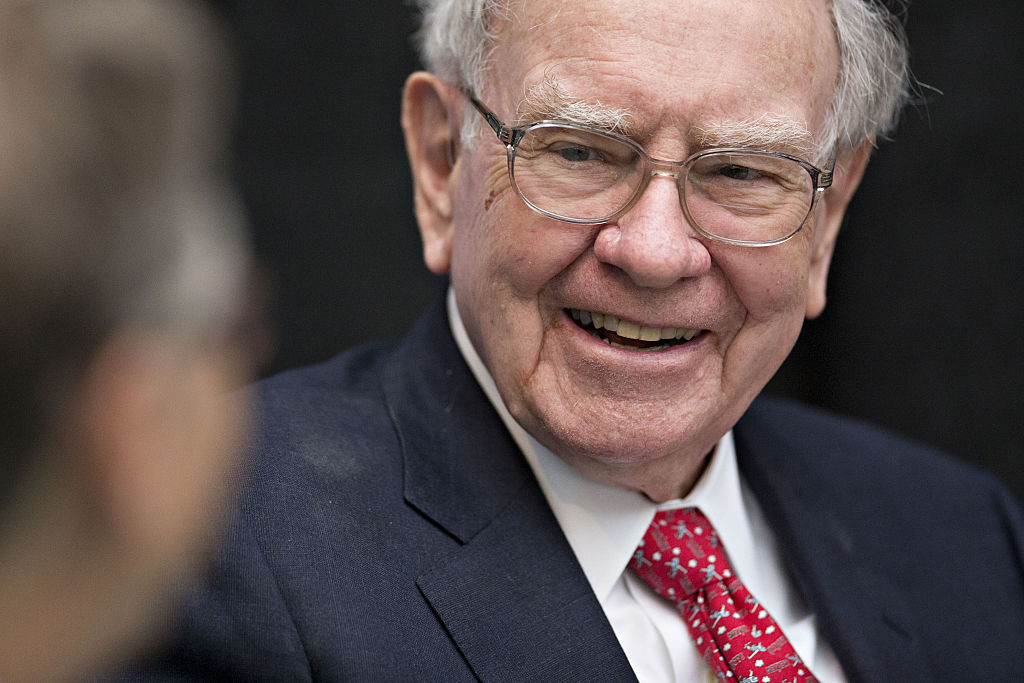Charlie Munger: the world’s greatest investors
Charlie Munger was originally a value investor, buying companies that were trading below their book value.

Get the latest financial news, insights and expert analysis from our award-winning MoneyWeek team, to help you understand what really matters when it comes to your finances.
You are now subscribed
Your newsletter sign-up was successful
Want to add more newsletters?

Charlie Munger was born in Omaha in 1924 and worked in Warren Buffett's grandfather's grocery store. After a stint in the air force, Munger went to several universities without graduating, eventually emerging with a law degree from Harvard Law School in 1948. After working as a lawyer he founded the investment firm Wheeler, Munger & Company in 1962 and ran a successful fund for the next 13 years. Later on, Munger became Warren Buffett's right-hand man at Berkshire Hathaway, serving as CEO of Wesco Financial, one of Berkshire's main holdings.
What was his strategy?
Munger was originally a value investor, buying companies that were trading below their book value (net assets). He also believed in concentrating on a handful of stocks at times he held no more than three companies. He argued this allowed him to focus on a few great opportunities, rather than several ones that were merely good. Later, his emphasis was on buying "growth at a reasonable price". He took this philosophy to Berkshire, which had an influence on Buffett.
Did it work?
His concentrated portfolio made his fund very volatile. It fell by 31.9% in 1973 and then 31.5% a year later, but rose by 71.7% in 1962, 56.2% in 1967 and 73.2% in 1975. Overall, it would return just under 20% a year between 1962 and 1975, turning an initial investment of $100,000 into $1.2m by the end. Over the same period the S&P 500 rose by just 4.9% a year. According to Forbes, Munger is currently worth $1.42bn.
Try 6 free issues of MoneyWeek today
Get unparalleled financial insight, analysis and expert opinion you can profit from.

Sign up to Money Morning
Don't miss the latest investment and personal finances news, market analysis, plus money-saving tips with our free twice-daily newsletter
Don't miss the latest investment and personal finances news, market analysis, plus money-saving tips with our free twice-daily newsletter
What was his best trade?
Munger helped persuade Warren Buffett to buy the confectionery firm See's Candies in 1972 for $25m, even though it was trading at three times book value. Over the next 25 years, profits at the stores grew by 24 times, a compound average growth rate of 13.5%, even before accounting for the large dividend, which increased the return to around 20%. Munger's best private investment was buying a share of oil royalties in a well in 1962 at a time when the oil price was at an all-time low. Within a decade Munger was receiving $100,000 a year.
What lessons does he have for investors?
Concentrating on just a handful of investments (though perhaps not to the extent Munger did) can help the average investor focus their attention on the best opportunities. The See's Candies investment shows that occasionally breaking your own rules can be a good idea, if the investment case is sound.
Get the latest financial news, insights and expert analysis from our award-winning MoneyWeek team, to help you understand what really matters when it comes to your finances.

-
 Student loans debate: should you fund your child through university?
Student loans debate: should you fund your child through university?Graduates are complaining about their levels of student debt so should wealthy parents be helping them avoid student loans?
-
 Review: Pierre & Vacances – affordable luxury in iconic Flaine
Review: Pierre & Vacances – affordable luxury in iconic FlaineSnow-sure and steeped in rich architectural heritage, Flaine is a unique ski resort which offers something for all of the family.
-
 Fund inflows hit a six-month high in November – where are investors putting their money?
Fund inflows hit a six-month high in November – where are investors putting their money?Investors returned to the financial markets amid the Autumn Budget in November 2025 but caution remains.
-
 The top stocks of 2025 - did you pick a winner?
The top stocks of 2025 - did you pick a winner?Last year was a chaotic one for the stock market, but which stocks did investors buy the most of?
-
 Canada will be a winner in this new era of deglobalisation and populism
Canada will be a winner in this new era of deglobalisation and populismGreg Eckel, portfolio manager at Canadian General Investments, selects three Canadian stocks
-
 The Stella Show is still on the road – can Stella Li keep it that way?
The Stella Show is still on the road – can Stella Li keep it that way?Stella Li is the globe-trotting ambassador for Chinese electric-car company BYD, which has grown into a world leader. Can she keep the motor running?
-
 Investing in the energy sector – is the reward worth the risks?
Investing in the energy sector – is the reward worth the risks?The energy sector used to offer predictable returns, but now you need to tread carefully. Is the risk worth it?
-
 Best-performing stocks in the S&P 500
Best-performing stocks in the S&P 500We take a look at the best-performing stocks in the US equity market. Are there opportunities outside of Big Tech?
-
 How to beat Warren Buffett – and the fund and trusts that have managed it
How to beat Warren Buffett – and the fund and trusts that have managed itWarren Buffett has achieved stellar returns for investors over a long and illustrious career. Can you rival his investment performance?
-
 What is Vix – the fear index?
What is Vix – the fear index?What is Vix? We explain how the fear index could guide your investment decisions.